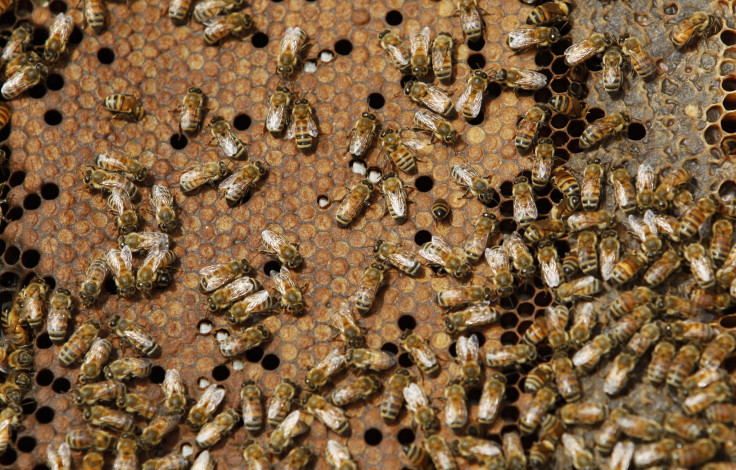Colony Collapse Disorder: EPA Approved Pesticide Linked To Mass Bee Deaths

The U.S. Environmental Protection Agency has conditionally approved thousands of under-tested pesticides, including one linked to the mass decline in bee populations, also known as colony collapse disorder, according to a recent report from the National Resources Defense Council.
In its report titled, “Superficial Safeguards,” the NRDC found that, as of October 2012, the EPA approved some 10,600 pesticides out of 16,500 -- nearly 65 percent -- on the market through its conditional registration process, allowing the products to reach store shelves before undergoing full toxicity testing.
“EPA is conditionally registering pesticides without critical data or with poor quality data,” wrote NRDC toxicology and environmental health scientist Jennifer Sass in a recent blog post.
The EPA’s conditional registration process is intended to allow certain pesticides onto the market while data are gathered, provided that the products meet minimal health and environmental standards.
The NRDC asserts, however, that conditional registration is being used as a loophole to approve thousands of pesticides and that the EPA has failed to keep track on them to ensure companies are gathering the necessary toxicology data.
“Properly used, conditionally registering a new pesticide provides an important benefit in special situations such as allowing new pesticides on the market to address a public health emergency,” reads the NRDC’s report.
“However, improper use of conditional registration means that scores of untested or under-tested pesticides may litter the market, potentially threatening human health,” it adds.
The EPA has granted conditional registration to a pesticide known as clothianidin, produced by Bayer CropScience, a unit of Germany's Bayer AG (FRA: BAYN), which has been proven toxic to bees, a fact that the EPA has acknowledged.
“The short-term exposure data show that clothianidin is toxic to bees, as are most insecticides,” reads an entry on the EPA’s website.
The EPA says that it restricts usage of the pesticide when plants are flowering and the bees are most active, adding that it “is not aware of any data demonstrating that bee colonies are subject to elevated losses due to long-term exposure to this compound.”
The NRDC said the initial impact study on clothianidin conducted by Bayer and required by the EPA for conditional registration “had numerous flaws” and failed to provide accurate data on the full extent of its effect on bee populations, while withholding information on its findings.
“Because Bayer failed to provide its raw data, the EPA could not conduct a statistical re-analysis of the study results, meaning that the EPA and the public must rely on the data analysis provided by Bayer rather than being able to scrutinize the data using alternate assumptions and approaches,” the NRDC said in its report.
Colony collapse disorder, or CCD, has resulted in the loss of some 30 percent of honey bee populations among beekeepers since 2007, the NRDC says.
Bee pollination of U.S. crops -- such as almonds, apples, cherries and pumpkins -- is responsible for an estimated $15 billion in increased crop value, according to the U.S. Department of Agriculture.
Clothianidin, which has been on the market since 2003, is one of many pesticides the NRDC says the EPA has conditionally approved without thorough evaluation.
The NRDC also says that the EPA has had a poor track record of following up with conditionally registered pesticides, allowing products to stay on shelves without examining further studies.
“Since EPA lacks a proper database to track the progress of all of the registrations, use of the conditional registration provision is a black hole where decisions lack transparency, there are no opportunities for public review and comment, and EPA is not held accountable,” wrote Sass.
The NRDC has demanded that the EPA conduct a full review of all conditionally registered pesticides and make the data public.
“To protect public health, EPA should immediately cancel conditionally registered pesticides that are missing data and that pose a risk to the public,” wrote Mae Wu, NRDC attorney, in an email to the International Business Times. “And EPA should fix its mess of a database to provide better transparency and accountability about the pesticides that are on our shelves.”
© Copyright IBTimes 2024. All rights reserved.





















